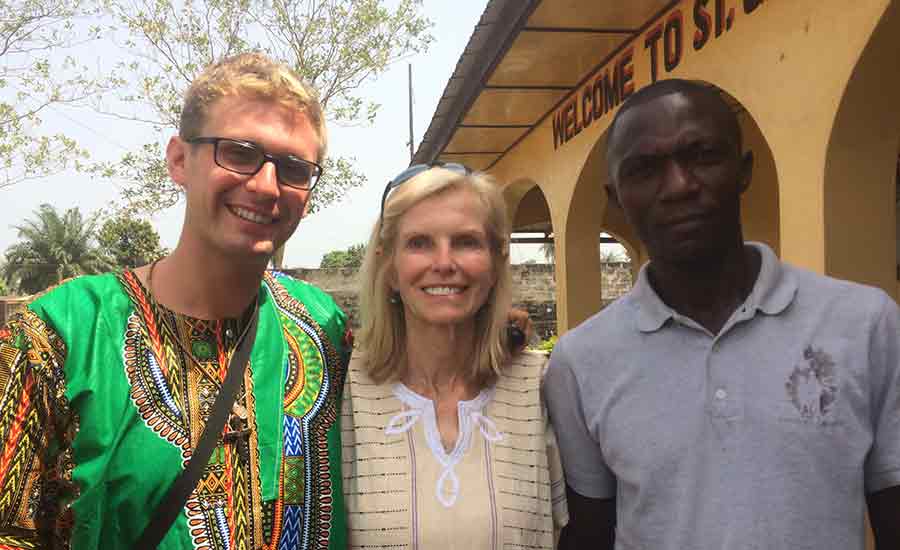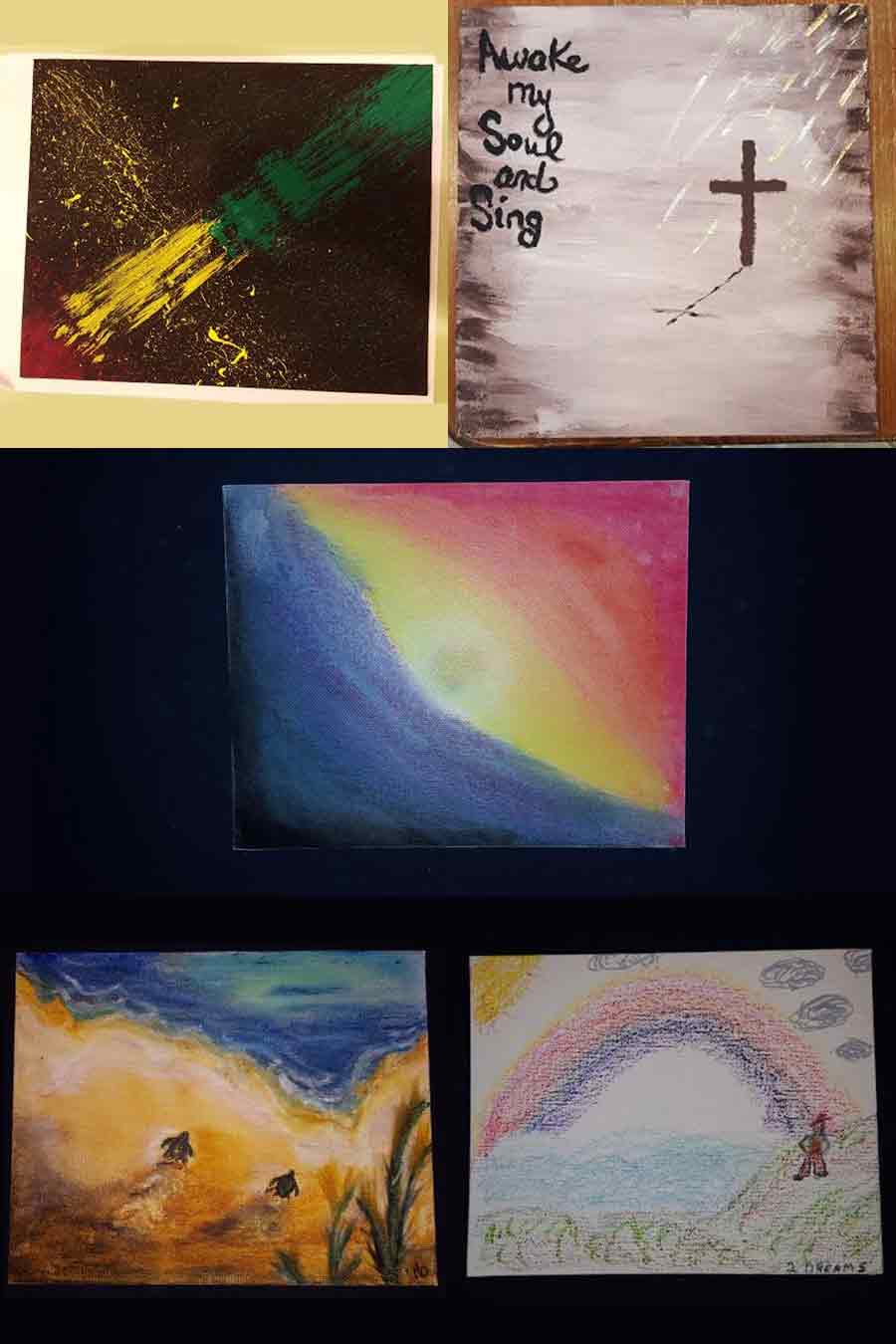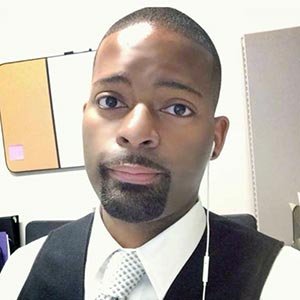Dream Journal
 Note From Dr B.
Note From Dr B.
Hope is the driving force behind recovery. You can see it in the glowing smile of the elderly man who finally made it through a full year without a drink. You can feel it in the bouncing step of the middle-aged woman whose regular physical therapy sessions have caused her pain levels to decrease. You can hear it in the proud applause of parents watching their now drug-free son walk across the stage to receive his college diploma. You can taste it in the glass of water that the teenage girl chooses to drink instead of alcohol at a friend’s party.
Dr. Barbara L. Fredrickson, Principal Investigator of the Positive Emotions and Psychophysiology Lab and Professor at the University of North Carolina, Chapel Hill, argues that hope “…comes into play when our circumstances are dire,” when “things are not going well or at least there’s considerable uncertainty about how things will turn out.” She states that “hope literally opens us up…and removes the blinders of fear and despair and allows us to see the big picture, thus allowing us to become creative” and have “belief in a better future”.
“Psychologist, C.R. Snyder and his colleagues say that hope is cultivated when we have a goal in mind, determination that a goal can be reached, and a plan on how to reach those goals”. Hopeful people are “like the little engine that could, because they keep telling themselves, “I think I can, I think I can.” Rehabilitation programs like Two Dreams cultivate that hope.
Acceptance is not concession, which implies the end of hope. Rather, it is reality defined as the way it is NOW (No Other Way) which offers a ray of hope. With acceptance, we can make the best of what we have now and hold onto hope for the future. With acceptance, we can experience serenity.
Sincerely,
Dr. B
Hope Springs Eternal

Where there is life there is hope, and where there is hope there is God.
I’ve always believed in that uncompromising truth despite the debilitating darkness that refuses to dissipate during active addiction. As I watched my oldest son Johnny slipping deep into the abyss I clung to hope, praying through the paralyzing terrain of relapse and recovery, believing with every fiber of my human will in the saving grace of God who is the source and the summit of all hope!
This past December I witnessed the powerful manifestation of hope in action during my 24-day visit to Liberia, West Africa where Johnny has been a missionary for the past two years. I watched with gratitude as he juggled his daily work and prayer with his responsibilities to the other missionaries and thirty-one orphans, ages 1 to 17. I marveled at his strength and resiliency amid the long hours, the sweltering heat, and the humble living conditions. I was deeply touched by his desire to reach out to a badly battered nation reeling from poverty following two civil wars and life threatening diseases like Ebola, Typhoid, Yellow Fever, and Malaria which Johnny survived three times.
Nearly seven years in recovery, Johnny is a man for others and the man I always believed he could become. He introduced me to his Liberian friends as we strolled down a winding dirt road in the “bush” where mud houses are nestled in between overgrown shrubs and palm trees. Laughing and joking with them in “Bassa,” the local dialect he has been teaching himself, Johnny proudly announced, “this is my “ma,” she’s come to visit me and Liberia.” The villagers beamed with pride, hugged me tightly and said, “He is a good man. He is also our son!”
During those precious weeks with Johnny I experienced his humility and his humanity. “I don’t have to make a lot of money, but I want a career that has meaning,” he shared. “I’d like to get married, but I want a wife who prays.” I can only hope!
Hope is the eternal whisper, the persuasive knowing that prods us to hang on when we are feeling helpless and afraid. Hope pushes us to believe in a solution even though we may be blinded by disbelief. Hope is heaven’s promise to carry us when we think we cannot go one step further. Hope harnesses the soulful power that propels us forward so we can rise above the darkness until we reach the inevitable light that always comes after the storm.
It takes an act of our human will to reach out to the hand of hope; to believe in a power greater than ourselves; to refuse to give up when we are feeling hopeless. So when you’re struggling, make a conscious decision to hang on tight and think about my son Johnny who is living, breathing proof that hope springs eternal!
Mary Lou McCall is a Prevention Specialist and blogger at “Miracle Moments” miraclesforyoutoo.blogspot.com
Theme as it Relates to Alcoholics Anonymous: Hope
“Alcoholics Anonymous is a fellowship of men and women who share their experience strength and hope with each other that they may solve their common problem and help others to recover from alcoholism” -The Alcoholics Anonymous Preamble.
The Alcoholics Anonymous preamble was first published in the June 1947 issue of the AA Grapevine magazine. It was written by the editor of the magazine, who borrowed much of his phrasing from the Forward page of the Big Book’s first edition. Today many AA groups open their meetings with a reading of the preamble because it is a concise description of the group’s goals and function. It also gives new members an idea of what to expect from the meetings.
An important part of AA is sharing hope and strength with others through common experiences. Members do not engage in alcohol education, solicit membership, or sponsor research; they learn and communicate through stories of recovery and life-changing occurrences. They talk about their lives before and after finding AA, and discuss how their personal recovery journey ended up leading them to their current position. Members can identify with others who have substance use disorders by listening to their stories of hope and sharing their own.
Newcomers to recovery usually start off with feelings of hopelessness, desperation, and shame. Listening to stories of hope in AA helps to change their minds, though, and makes them believe that recovery is possible. This common bond of hope makes recovery attainable for all members.
Client Artwork
News Highlights
One Hopeful Step Closer to Effective, De-stigmatized Treatment of Drug Addiction
Hopes are high as lawmakers increase efforts to reduce the stigma of drug addiction and replace jail time with treatment time. The governor of Boston in particular is working to repeal a bill mandating a minimum sentence for drug offenses. Addiction is a disease, and society is gradually beginning to view it as one.
Hopefully Lower Dosing Can Help Prevent Overdosing
A recent study conducted by a Michigan-based opioid expert suggests that the strength/dosage of written prescriptions relates to the likelihood of subsequent overdose. The study looked at veteran records from the VA Ann Arbor Healthcare System and compared data from those who died of accidental opioid overdoses and those who took opioids without overdosing. Overdose victims, on average, were prescribed a much higher dose, suggesting that physicians should avoid prescribing excessively high concentrations of opioids in order to prevent future overdoses.
Featured Staff Member Q&A — Jerion Moore
CONTENT
Q. What is your current position and job description?
Executive Assistant to Sidney Miltz, Clinical Director at Two Dreams. My duties include maintaining Sid’s calendar, scheduling appointments, and assisting the National Team by tying any loose ends. I do additional admin duties as required.
Q. Where did you work before Two Dreams and what did you do?
I previously worked at Ochsner Medical Center in the Dept of Cardiology. I was Executive Assistant to the Chairman of Cardiology and the Sr. Exec Team. My duties included maintaining and updating the Chairman’s calendar, taking patient phone calls, and performing other administrative duties.
Q. What has your journey been like at Two Dreams?
It has been amazing. I knew from the day I interviewed that it would be a warm and welcoming environment. I was right, the people are great and the atmosphere is very welcoming.
Q. What made you get into this profession?
It was actually in High School. I had a school-to-work program with a gas company where I would go in after school and tie together any loose ends such as making copies, updating reports, purchasing items, taking warehouse inventory etc. I continued to grow in the administrative field and here I am today.
Q. What is the most gratifying part of your job?
Working in a peaceful environment with such great people. I feel as though that makes a big difference in terms of productivity.
Q. What do you like about the Two Dreams program?
It is an excellent program, geared toward helping people to get back on their feet and to succeed in recovery. It’s very rewarding to watch the progress of clients over time. It is a great feeling to know you have contributed to a client’s recovery in some way.
Q. Where did you go to college and post-grad and what did you study?
I attended grad school at Southern University at New Orleans. My Master’s Degree was in Criminal Justice with a concentration in Juvenile Justice.
I attended undergrad at the University of Southern Mississippi in Hattiesburg, MS. My Bachelor’s Degree was in English.
Q. How would others describe you? How does your personality complement the work you do?
Others would describe me as calm, easy to get along with, and a peacemaker. My personality complements the work I do in that we all feed off the energy of each other; so being calm and easy to get along with makes it easier for everyone to get things accomplished without conflict.
Q. What do you like to do when not at work? What are your favorite hobbies?
I love to listen to music. I could spend hours going through my Ipod listening to different songs.
Q. Anything else you would like us to know?
I am an active member of my church where I am Team Leader of the finance department.
3 P’s January 2016
Physical Well-Being, Personal Productivity, Mental Peace

Theme: HOPE
Hope is an amazing aspect of our mind and heart that allows us to be optimistic about something that we desire. It is the thought of a positive outcome related to our wants and desires. We hope throughout our day for many things and we may not even be conscious about our hopes. It is time to begin to be aware of our hopes and analyze what we can do in order to make those hopes realities. What do our daily “hopes” look like? They may be as simple as, “we hope that we will have the time to go to the gym today”, or “we hope that we get that new job that we applied for”, or even “we even hope that we have time to take a moment out of our day for ourselves, put things into perspective and look at the beautify that surrounds us.” Hope may get us through the moments when despair threatens to crush us.
The wonderful thing is that we can actually do something with our hope; we can put it to work. We can ensure that we set aside time to take care of our bodies, put that extra effort into what makes us feel like productive members of society, and deliberately take time for ourselves every single day to achieve a status of mental peace in our lives. What do you hope for?
Outer Banks Community Update February 2016
Learn from yesterday, live for today, hope for tomorrow
– Albert Einstein
We have had some great opportunities to help out our community this month. For example, we got to volunteer at the local American Society for the Prevention of Cruelty to Animals (ASPCA) in Dare County. We also had the unique opportunity to help a local organization called The Beach Food Pantry. This group provides food for those in need and happened to be relocating to a new building this month. Over a period of three days, we helped to bring items into the new facility, organize and take inventory of the items they had, and transport essentials from the old location to the new location. We were instrumental in helping the organization achieve their goal and had fun doing it! The experience helped us to better understand what hope means to us as individuals. It also encouraged us to accept the past and reach for new tools to prepare for a better future. Most importantly, we learned to put into practice the concept of living “just for today.”
Chicago Update February 2016
We have been working to produce informative and relevant blog content that incorporates the Two Dreams philosophy. We hope that in doing this we will be able to reach a wide population of individuals who need treatment and/or accurate information about addiction. Please let us know if there are any topics that you would like for us to cover in more detail; we’d be happy to oblige! We are open to any and all suggestions that would help us to make your online experience with Two Dreams pleasant and stress-free.
NOLA Update February 2016
As I began my personal recovery journey, through the guidance of those familiar with my disease, I was given many gifts. The first gift was the clarity I found when I stopped engaging in my addiction. Another precious gift I acquired early on was the gift of hope; I found hope for a life that would provide me with a “new freedom and a new happiness” (one of the Twelve Promises of Alcoholics Anonymous). Shame brought on by addiction can be quite toxic and render one hopeless, but today I do not have to live that way. My hope came about through the development of healthy habits, and with the help of a solid support system and my willingness to work a spiritual program. Now, when I wake up in the morning, I find myself with a level of hope that I was unable to even imagine before I began my journey.
Like everyone, I have days when I feel like I am stuck, but I can use the tools graciously given to me by my kind-hearted guides through recovery. My hope is further reinforced, and I realize that there is always a positive way to handle going through a tough time. No one should have to live life in a hopeless state. If you are feeling hopeless, or have a loved one who is feeling hopeless, please call us here at Two Dreams; we would be happy to help guide you towards a hopeful life.
Thank you to our content contributors
For admissions and all staff call us at: (504) 510-2331
© 2016 Two Dreams. All Rights Reserved.

 Note From Dr B.
Note From Dr B.
